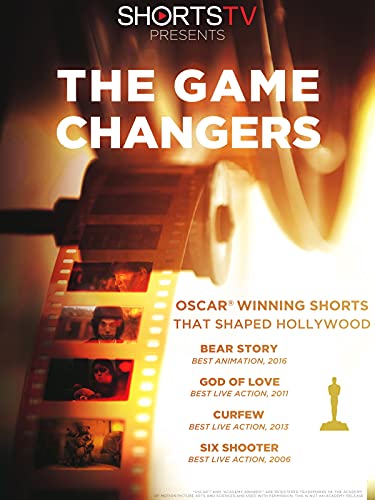Michelle Williams recently reflected on “Brokeback Mountain’s” shocking Oscar loss to “Crash,” questioning the Academy’s decision. She emphasizes that while “Crash” tackled societal issues, it lacked the depth and nuance found in “Brokeback Mountain.” This conversation highlights the ongoing struggle for LGBTQ+ representation in cinema and raises important questions about storytelling in film. You might find it intriguing to explore how this pivotal moment shaped perceptions of both films in Hollywood.
Key Takeaways
- Michelle Williams expressed her confusion over “Brokeback Mountain’s” loss to “Crash,” questioning the decision-making process of the Academy.
- Critics argue that “Crash” lacks depth in its portrayal of societal issues compared to the nuanced storytelling in “Brokeback Mountain.”
- “Brokeback Mountain” is celebrated for its groundbreaking representation of LGBTQ+ relationships, contrasting sharply with the themes in “Crash.”
- The 2006 Oscar upset sparked discussions about the Academy’s recognition of diverse narratives in cinema, particularly regarding LGBTQ+ stories.
- Many film scholars view “Brokeback Mountain” as a more impactful film, highlighting its cultural significance over “Crash’s” well-intentioned but shallow approach.

In 2006, the film “Brokeback Mountain” faced one of the most shocking upsets in Oscar history when it lost the Best Picture award to “Crash.” Michelle Williams, who played a pivotal role in the film, expressed her confusion and disappointment over this outcome. This moment not only shocked audiences but also highlighted the ongoing struggle for acceptance and recognition of LGBTQ+ narratives in mainstream cinema.
“Brokeback Mountain,” directed by Ang Lee, presents a powerful and poignant story about the tumultuous romantic relationship between two cowboys, Ennis Del Mar and Jack Twist. Set against the sweeping backdrop of the American West, the film dives into themes of love, identity, and social norms that resonate deeply with viewers. Its cultural impact is significant, as it paved the way for more diverse storytelling in film, especially concerning LGBTQ+ representation in cinema.
Brokeback Mountain poignantly explores love and identity, reshaping LGBTQ+ storytelling in cinema against the vast American West.
The film garnered eight Academy Award nominations, including Best Picture, yet its loss to “Crash” left many scratching their heads. Critics often point out that “Crash,” while well-intentioned, fell short in its portrayal of complex societal issues. In contrast, “Brokeback Mountain” is celebrated for its nuanced exploration of love and identity. The Academy’s decision to overlook such a groundbreaking film is frequently regarded as a missed opportunity, and one that still stings for many, including Williams.
Reflecting on the legacy of “Brokeback Mountain,” it’s clear that its impact endures. It remains a beloved classic, praised by audiences and critics alike. Cast members, like Jake Gyllenhaal, often reflect on how the film shaped their careers and the industry as a whole. While “Crash” may have captured the Oscar, it’s “Brokeback Mountain” that continues to resonate as a cultural touchstone, inspiring conversations around non-traditional relationships and pushing the boundaries of storytelling in cinema.

Hollywood Pride: A Celebration of LGBTQ+ Representation and Perseverance in Film (Turner Classic Movies)
As an affiliate, we earn on qualifying purchases.
As an affiliate, we earn on qualifying purchases.
Frequently Asked Questions
What Year Did “Brokeback Mountain” Win Its Oscars?
*Brokeback Mountain* won its Oscars at the 78th Academy Awards, held in 2006.
You’ll find that the film secured three Oscars, including Best Director for Ang Lee, who made history as the first Asian winner in that category.
It also took home awards for Best Adapted Screenplay and Best Original Score.
Despite its achievements, it didn’t win the coveted Best Picture award, losing out to *Crash*.
Who Directed “Crash”?
Imagine a world where tangled destinies intersect, revealing the raw heart of humanity.
You might know that “Crash,” a film that delves into the complexities of racial and social tensions, was directed by Paul Haggis. His vision, inspired by personal experiences, stirred conversations and challenged perceptions.
With a talented ensemble cast, Haggis crafted a narrative that resonates even today.
What Themes Are Explored in “Brokeback Mountain”?
In “Brokeback Mountain,” you’ll find themes of love, societal conflict, and tragedy.
The film explores how love can persist despite societal obstacles, highlighting the intense passion and longing between Jack and Ennis.
You’ll notice the internal struggle against homophobia and traditional norms that forces them to hide their relationship.
Ultimately, the tragic ending illustrates the emotional toll of societal intolerance and the unfulfilled dreams that haunt them throughout their lives.
How Many Oscars Did “Crash” Win?
Imagine the shockwaves rippling through Hollywood as “Crash” snagged three Oscars, including Best Picture, while audiences gasped in disbelief.
You can’t help but marvel at how it triumphed over heavyweights like “Brokeback Mountain.” It also claimed Best Original Screenplay and Best Film Editing.
With six nominations in total, its victory sparked debates that still echo today. Critics often question how this choice became a defining moment in Oscar history.
What Was the Critical Reception of “Crash”?
“Crash” received a mix of critical reception, holding a 74% approval on Rotten Tomatoes and a Metacritic score of 66.
While critics praised its direction and performances, especially from Matt Dillon, they found its portrayal of racial tensions too direct.
Audiences rated it an “A−,” indicating strong appreciation.
Over time, however, many have questioned its Oscar win, leading to debates about its lasting impact and relevance compared to contemporaries like “Brokeback Mountain.”

The Game Changers: Oscar Winning Shorts That Shaped Hollywood
As an affiliate, we earn on qualifying purchases.
As an affiliate, we earn on qualifying purchases.
Conclusion
As you reflect on Michelle Williams’ poignant questions about “Brokeback Mountain’s” Oscar loss, it becomes clear that sometimes the brightest stars get overshadowed by the dimmest lights. “Crash” may have taken the award, but true artistry often goes unnoticed in the shadows of popular opinion. In the end, it’s a reminder that the heart of cinema beats beyond the gold statues, resonating in the stories that linger long after the credits roll.

ESSENTIAL FILM COLLECTION
The Essential Film Collection – Piano
As an affiliate, we earn on qualifying purchases.
As an affiliate, we earn on qualifying purchases.

Charlotte's Web: A Newbery Honor Award Winner
As an affiliate, we earn on qualifying purchases.
As an affiliate, we earn on qualifying purchases.









